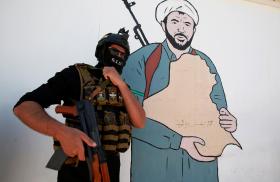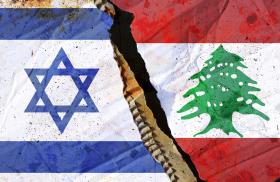That the PKK is deeply engaged in a wide array of criminal activities should not be surprising to those familiar with the group.
This month, the U.S. Treasury Department designated three individuals as narcotics traffickers acting on behalf of the Kurdistan Workers Party (PKK), or Kongra-Gel. That the PKK is deeply engaged in a wide array of criminal activities should not be surprising to those familiar with the group. Focusing law enforcement and intelligence efforts on targeting and exposing such activities is an especially effective means of combating both the organization's criminal and terrorist activities. Consider the case of Lebanese Hezbollah, which has been the target of several nations' law enforcement agencies.
Exposure of the group's transnational criminal activity -- especially drug running -- brought together a wide spectrum of countries to combat illegal activities that are coincidentally carried out by violent extremist groups. A similar focus on the PKK could have tremendous benefits of both an anti-crime and anti-terrorism nature.
Over the past two years, a string of criminal investigations has exposed Hezbollah's global criminal activities, from weapons smuggling and fencing stolen goods to drug trafficking and money laundering. None has been more significant, though, than the investigation that revealed Hezbollah operatives were using Lebanese and African banks to launder drug money destined for Hezbollah.
An extensive U.S. investigation uncovered that Lebanese-born Ayman Joumaa laundered as much as $200 million per month -- money made from the sale of cocaine in Europe and the Middle East via operations in Lebanon, West Africa, Panama, and Colombia -- using money exchange houses, bulk cash smuggling, and other schemes. Furthermore, several Lebanese entities were designated under the Foreign Narcotics Kingpin Designation Act, including Lebanon's landmark Caesar's Park Hotel and other companies. Two weeks later, authorities identified the Lebanese Canadian Bank (LCB) and its subsidiaries as "a financial institution of primary money laundering concern" under section 311 of the USA PATRIOT Act. Aided by bank managers, some with family ties to his network, Joumaa used LCB to execute sophisticated trade-based money laundering schemes to launder drug money.
The success of U.S. authorities in targeting narco-terrorist groups like the PKK and Hezbollah has been well documented. Not surprisingly, the PKK and Hezbollah sometimes work with the same facilitators and criminal networks. In July 2001, for example, the U.S. Department of Justice charged three defendants with conspiring to provide support to Hezbollah, the PKK, and PEJAK (the PKK offshoot).
U.S. officials noted that the narco-terrorism undercover operation was supported by Romanian authorities who "identified Kurdish PKK members that were selling heroin to support their terrorist organization."
Fast forward to today. Among the Moldova-based individuals named by the U.S. Treasury this month is Zeyneddin Geleri, a "high ranking member of the PKK" who belongs to a Romania-based drug trafficking network that used import and export companies for illicit activities across Europe. Geleri is tied to Cerkez Akbulut, who was involved with the seizure of 199 kilograms of heroin worth some $8.8 million in March 2008 by Moldovan police and was also listed. A third man, Omer Boztepe, sentenced to 12 years imprisonment for narcotics trafficking activities, is currently a fugitive from Moldovan authorities. The Turkish Foreign Ministry welcomed the U.S. action, noting that the PKK is "directly involved in all kinds of organized crime, including drugs trafficking for terrorism financing."
Indeed it is, very much like Hezbollah. But the parallels between the two groups do not end there. The PKK is widely known to engage is terrorist activities in Turkey, but increasingly so does Hezbollah. In May 2011, Hezbollah and Iranian Qods Force agents set off a bomb in Istanbul. They missed their target, the Israeli Consul General, but injured eight innocent people. Other Hezbollah plots in Turkey -- apparently intended as revenge for the assassination of Hezbollah master terrorist Imad Mughniyeh in February 2008 -- were foiled in August, October, and December 2009.
In other words, from anti-crime and counter-terrorism perspectives, both the PKK and Hezbollah should be of concern to law enforcement and intelligence services.
The Treasury's latest action, its first targeting PKK's criminal activities in Europe, is a good start to what should become a focused strategy aimed at targeting PKK criminal activities worldwide. Such a strategy is proving remarkably successful in curbing Hezbollah's criminal and terrorist activities. It could be equally effective targeting the PKK.
Matthew Levitt is director of the Stein Program on Counterterrorism and Intelligence at The Washington Institute.
Hurriyet Daily News


